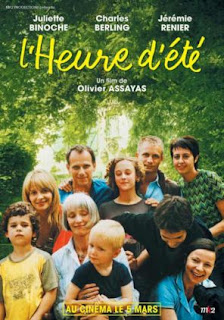 Based on what I see and read on this blog, I’m going to make a recommendation…
Based on what I see and read on this blog, I’m going to make a recommendation…
Go see a movie.
I recommend the following: Summer Hours (L’heure d’été).
If you’ve seen Paris, je t’aime, you’ve seen this director’s work. His name is Olivier Assayas. While his work on that short film is hardly worthy of attention (think Maggie Gyllenhaal on drugs), his latest effort is definitely worth $7.50 and two hours of your life.
The entire effort began through Paris’ Musée d’Orsay in celebration of the museum’s twentieth anniversary. While the initial project was abandoned, Assayas continued his efforts, turning what was initially conceived as a short film into a subtly poetic feature.
The end effort wreaks the boring stench of Chekhov, but somehow continues to fascinate me. The story is a modern reflection on the cycle of generations and the progress and decline of culture, all packaged in a mute drama of three distinct acts. ACT ONE: the family gathers to celebrate the mother’s birthday. She takes her oldest son aside to verbally cram the contents of her will into his ears; these consist of paintings by famous French artists, furniture pieces, etc., and the summer house they are currently in. (The film’s production design in this respect is dead-on, a dingy, artsy French cottage estate.) ACT TWO: mother dies a year-or-two later, and the three children (around 30 years of age) decide what to do about it.
As for the remaining half of the film, I hope my writing pushes you to see it. This is a modern family that participates in modern artistic culture. The director’s perspective sheds light on the importance of memory within a culture, of the practicality of clinging on to the past, and the value of preserving it. At the end, although the life and art of the past generation has been scattered and sold, hope seeps forth from the least likely supporting characters.
While Summer Hours lacks dynamism, that doesn’t make it bad; the film is appropriately undramatic. Audiences leave alerted to the importance of culture by telling a story involving the specific disassociation of artifacts from one generation of a family, a microcosm of a period of culture. Go watch how the story carries out and reflect on it. This is not my kind of film, but I really liked it.

